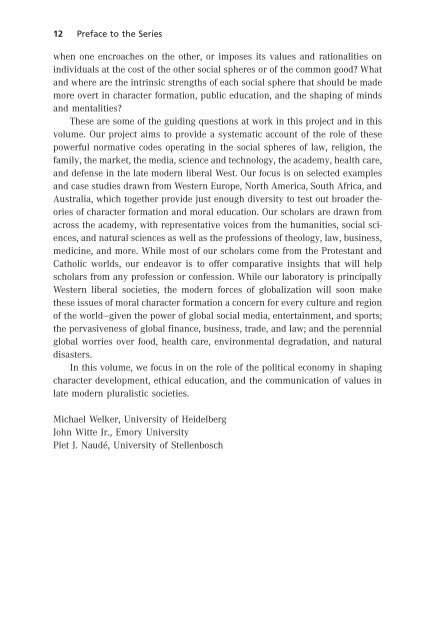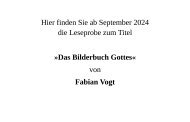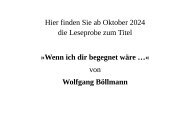Piet Naudé | Michael Welker | John Witte, Jr. (Eds.): The Impact of Political Economy (Leseprobe)
In our late modern pluralistic societies, there are tensions and complementarities between a plurality of individual and social claims and activities to shape societal life and a constructive pluralism of what is known as social systems. The latter provide normative codes and powers emanating from the areas of law, religion, the family, the market, the media, education, academic research, health care, defense and politics. A better understanding and steering of this complex division of powers is crucial for the common good and for freedom and peace. In this volume, a multi-disciplinary team of experts from Germany, Italy, Australia, the UK, the USA, and South Africa bring their conceptual, empirical and historical insights to bear in three broad sections: »The moral dimension of social systems«; »The interaction of religion, law and education with political systems«; and »The moral (mal)-formation evident in case studies on the global financial crisis and social media«.
In our late modern pluralistic societies, there are tensions and complementarities between a plurality of individual and social claims and activities to shape societal life and a constructive pluralism of what is known as social systems. The latter provide normative codes and powers emanating from the areas of law, religion, the family, the market, the media, education, academic research, health care, defense and politics. A better understanding and steering of this complex division of powers is crucial for the common good and for freedom and peace.
In this volume, a multi-disciplinary team of experts from Germany, Italy, Australia, the UK, the USA, and South Africa bring their conceptual, empirical and historical insights to bear in three broad sections: »The moral dimension of social systems«; »The interaction of religion, law and education with political systems«; and »The moral (mal)-formation evident in case studies on the global financial crisis and social media«.
You also want an ePaper? Increase the reach of your titles
YUMPU automatically turns print PDFs into web optimized ePapers that Google loves.
12 Preface to the Series<br />
when one encroaches on the other, or imposes its values and rationalities on<br />
individuals at the cost <strong>of</strong> the other social spheres or <strong>of</strong> the common good? What<br />
and where are the intrinsic strengths <strong>of</strong> each social sphere that should be made<br />
more overt in character formation, public education, and the shaping <strong>of</strong> minds<br />
and mentalities?<br />
<strong>The</strong>se are some <strong>of</strong> the guiding questions at work in this project and in this<br />
volume. Our project aims to provide asystematic account <strong>of</strong> the role <strong>of</strong> these<br />
powerful normative codes operating in the social spheres <strong>of</strong> law, religion, the<br />
family, the market, the media, science and technology, the academy, health care,<br />
and defense in the late modern liberal West. Our focus is on selected examples<br />
and case studies drawn from Western Europe, North America, South Africa, and<br />
Australia, which together provide just enough diversity to test out broader theories<br />
<strong>of</strong> character formation and moral education. Our scholars are drawn from<br />
across the academy, with representative voices from the humanities, social sciences,<br />
and natural sciences as well as the pr<strong>of</strong>essions <strong>of</strong> theology, law, business,<br />
medicine, and more. While most <strong>of</strong> our scholars come from the Protestant and<br />
Catholic worlds, our endeavor is to <strong>of</strong>fer comparative insights that will help<br />
scholars from any pr<strong>of</strong>ession or confession. While our laboratory is principally<br />
Western liberal societies, the modern forces <strong>of</strong> globalization will soon make<br />
these issues <strong>of</strong> moral character formation aconcern for every culture and region<br />
<strong>of</strong> the world—given the power <strong>of</strong> global social media, entertainment, and sports;<br />
the pervasiveness <strong>of</strong> global finance, business, trade, and law; and the perennial<br />
global worries over food, health care, environmental degradation, and natural<br />
disasters.<br />
In this volume, we focus in on the role <strong>of</strong> the political economy in shaping<br />
character development, ethical education, and the communication <strong>of</strong> values in<br />
late modern pluralistic societies.<br />
<strong>Michael</strong> <strong>Welker</strong>, University <strong>of</strong> Heidelberg<br />
<strong>John</strong> <strong>Witte</strong> <strong>Jr</strong>., Emory University<br />
<strong>Piet</strong> J. <strong>Naudé</strong>, University <strong>of</strong> Stellenbosch
















